“Learning and innovation go hand in hand. The arrogance of success
is to think that what you did yesterday will be sufficient for tomorrow.”– William Pollard
PURPOSE. AUTONOMY. MASTERY.
Coronavirus is having an unprecedented impact on the events scene. However, the virus does not have to bring the industry to a halt.
Virtual reality (VR) offers a solution to the travel bans that companies worldwide are facing, as well as to the restrictions that governments are imposing on large gatherings. Over the last four years, Flowlab has consulted with government and private organizations to bring their therapeutic and educational systems online.
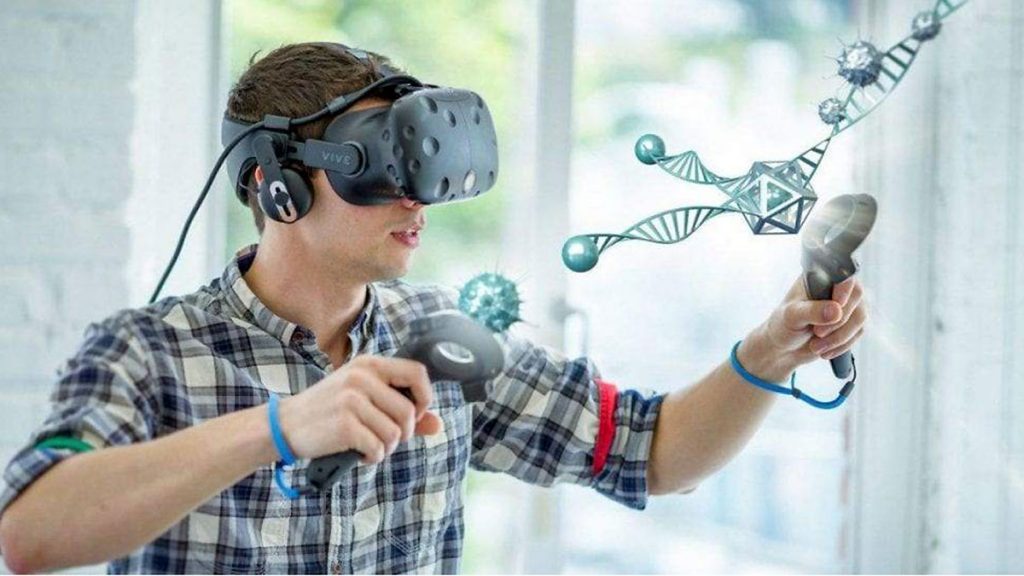
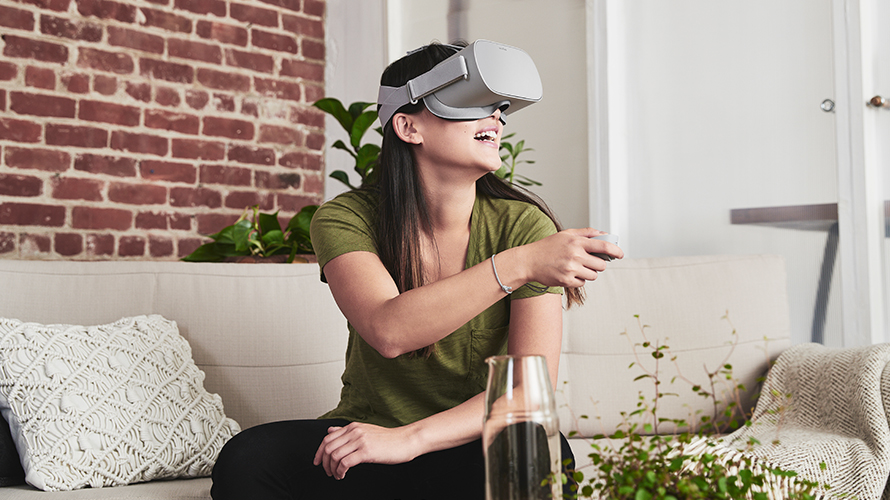
We accomplish this by implementing virtual reality technologies with behavioral modalities (EMDR/EMVR, Narrative Reformatting, and Psychological Priming) to create a more immersive experience for users. As companies participate in accelerated efforts to bring their curricula and therapeutic technologies online, it becomes immediately apparent to most that the simple transfer of curriculum or therapy (etc.) into the online format is not enough to ensure a sustainable model for the future.
Many of the companies with which we have worked have already discovered that traditional methods of delivering courses online are being slowly adopted or outright rejected because those methods simply do not deliver an immersive and emotionally engaging experience for students, employees, and patients.
Virtual reality bridges this gap in distance learning by providing a truly immersive experience that can be accessed globally. The strongest proof that virtual reality can vastly improve the education system is the human brain. The fact is, the brain tends to remember 10% of what it reads, 20% of what it hears, and 90% of what it does or simulates. Think of this in terms of a student who is currently learning geometry on a two-dimensional printed surface. To call this approach obsolete is an understatement.
We believe that virtual reality doesn’t have to be tremendously expensive;
it can have huge implications for everything from art to education.
Virtual reality can be for everyone.– Alex Faaborg – Designer, Google VR Reality Team – TEDxCincinnati
During a workshop collaboration by the Global Training Initiative (G.T.I.) from North Carolina State University and Distance Education and Learning Technologies Applications (DELTA), educators introduced the system into cultural competence classes. In addition, students were placed in a cinematic virtual reality world in an effort to help participants perceive others’ cultures and cultivate their own interpretation. Virtual reality immersion in distance learning has been an encouraging learning model so far. Researchers are working to further promote it in other academic areas by developing empathy.
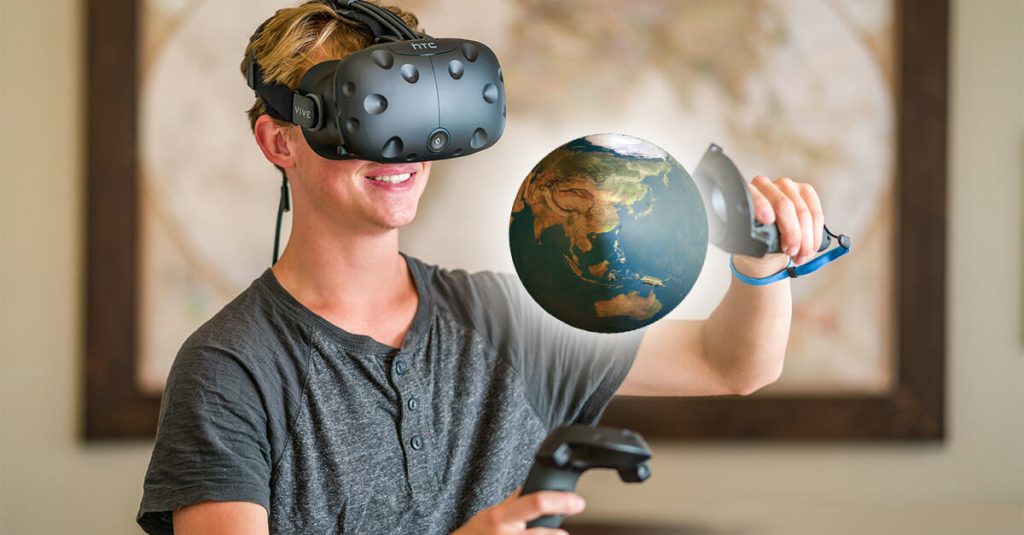
You never change things by fighting the existing reality. To change something,
build a new model that makes the existing model obsolete.― Buckminster Fuller
Virtual Reality Therapy
Virtual reality therapy (also known as virtual reality immersion therapy), simulation for therapy, virtual reality exposure therapy, and computerized CBT, is the use of virtual reality technology in psychological or occupational therapy and in affecting virtual rehabilitation.
Patients who receive virtual reality therapy navigate digitally created environments and complete specially designed tasks, often tailored to treat a specific ailment. Technology can range from a simple PC and keyboard setup to a modern virtual reality headset.
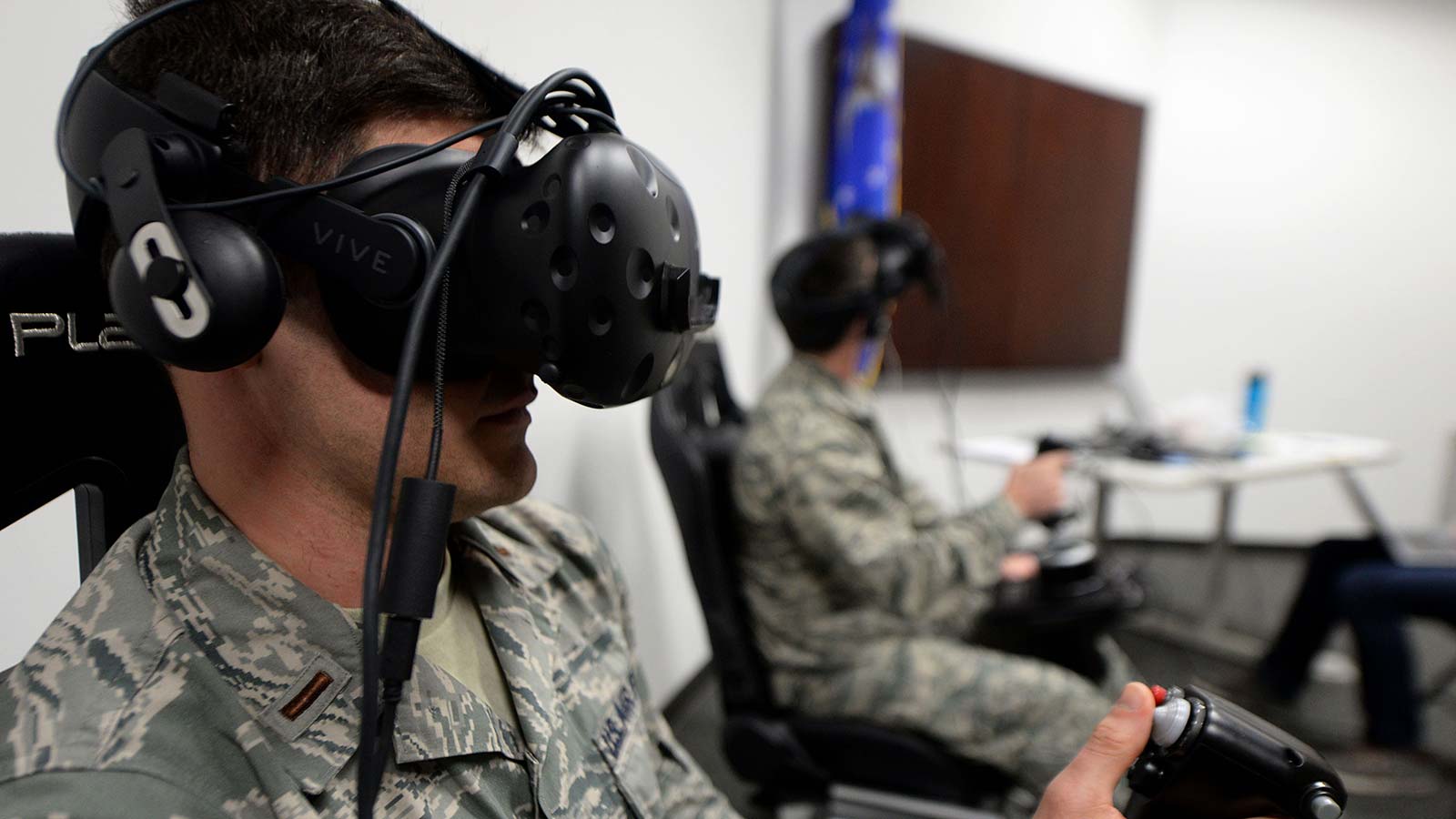
It is widely used as an alternative form of exposure therapy, in which patients interact with harmless virtual representations of traumatic stimuli to reduce fear responses. It has proven to be especially effective in treating PTSD.
Virtual reality therapy has also been used to help stroke patients regain muscle control, to treat other disorders such as body dysmorphia, and to improve social skills in those diagnosed with autism. Each of these therapies can be distributed integrated online distance learning networks.
Learn More...
Flow Trainer System
The Flow Trainer System combines multiple modalities to induce a “flow state” in any individual or group. This proprietary, Virtual Reality-enabled sytem delivers to the student or client increased memory retention, comprehension, and enhanced pattern recognition. Due to the nature of its design, The Flow Trainer System is adaptable enough to train any subject for any task requiring focus, physical or mental fluidity, and a ability to absorb information quickly.
EMVR
Eye Movement Virtual Reality (EMVR) is the next evolution in the ground breaking work of Francine Shapiro, PhD who developed Eye Movement Desensitization and Reprocessing (EMDR) in the late 1980’s. EMVR revolutionizes the process by creating an evironment where a deep therapeutic process can be achieved and delivered via the internet.
Flowlab Takes 1st Place
Designed to help warfighters in the areas resilience, skill decay reduction, and immediate assistance due to battlefield trauma, iFLOW AI is a real-time integrated system capable of delivering remote access and psychological support to soldiers and operators worlwide. The proprietary network is comprised of automated, AI-enabled training and mental health modules to help operators play an active role in maintaining peak performance states both mentally and physically.
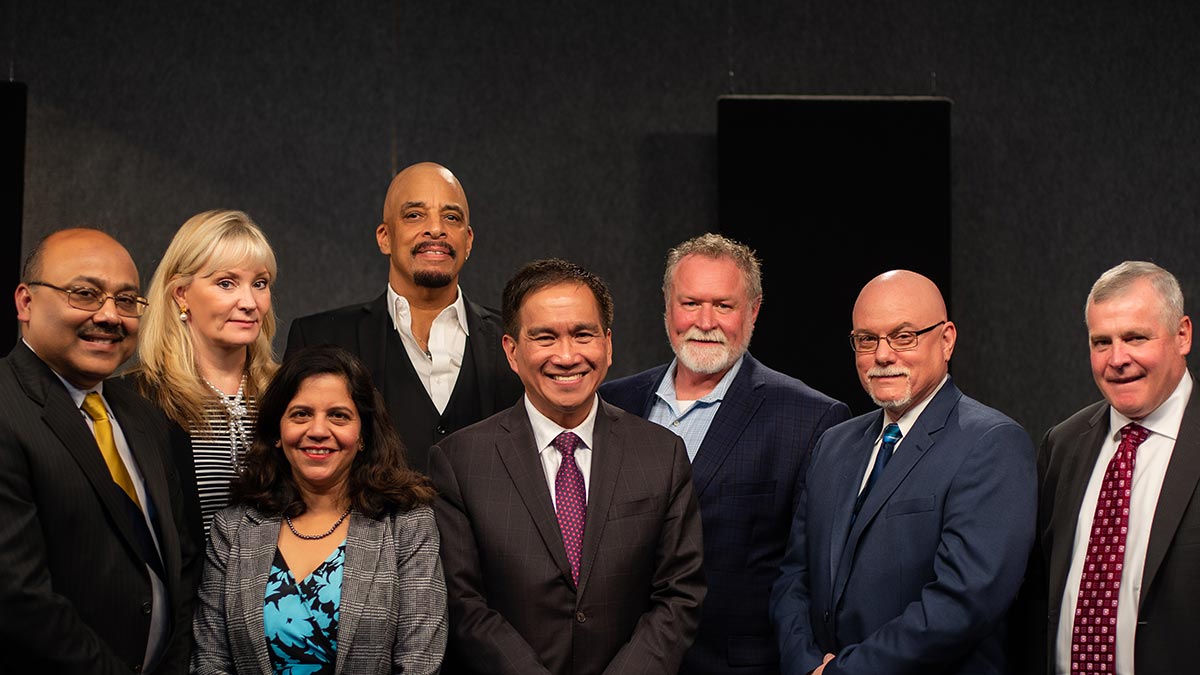
(Photo Above) CEO Jamaal Fort takes 1st place in the AFCEA Innovation Showcase October 2019.
Articles
Facebook almost missed the mobile revolution.
In late 2011, Facebook found itself in a terrifying position for a soon-to-be-public tech company: It was behind.
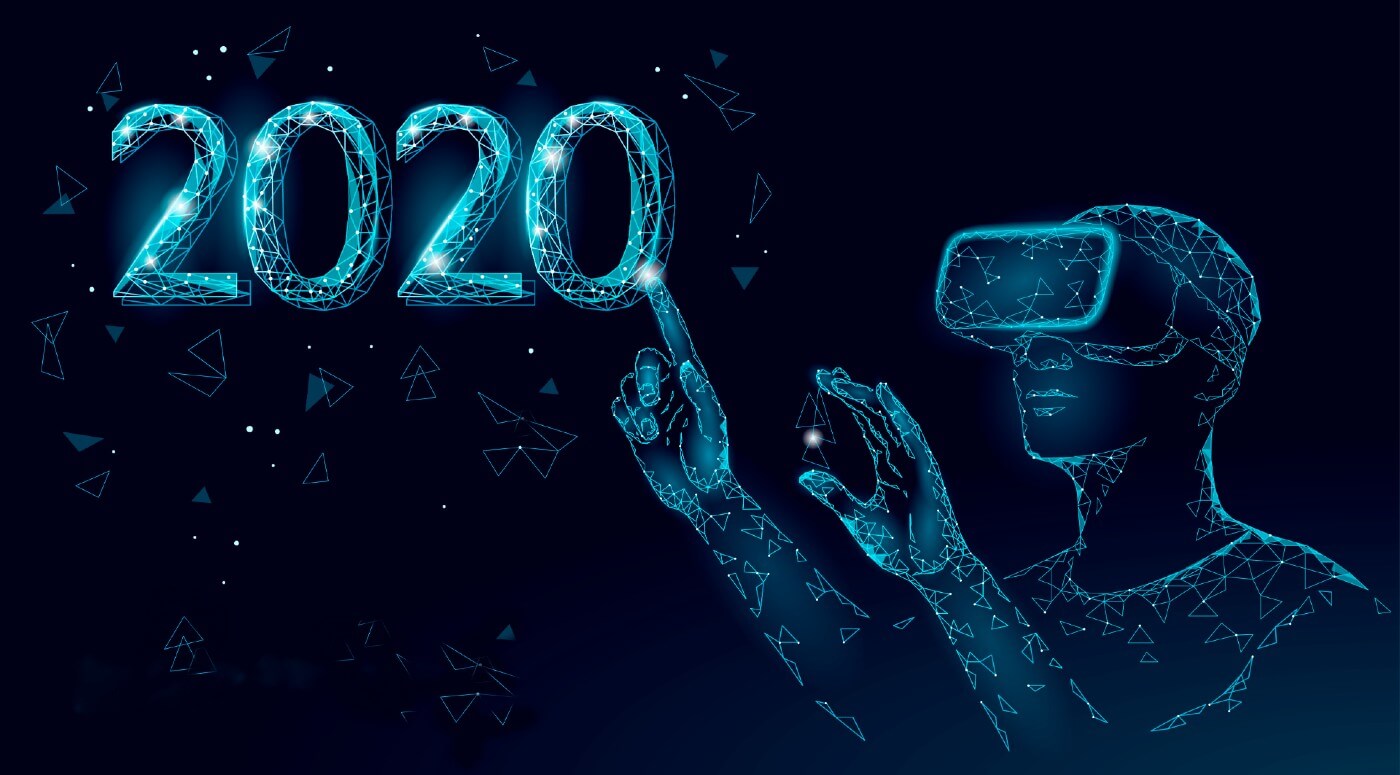
How Will Augmented Reality (AR) and Virtual Reality (VR) Change Industries in 2020
Augmented reality and virtual reality are the major emerging technologies that will affect the economy and your life. According to Goldman Sachs, the two technologies are estimated to grow a $95 billion worth market by the year 2025.

